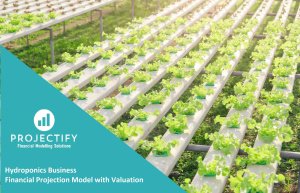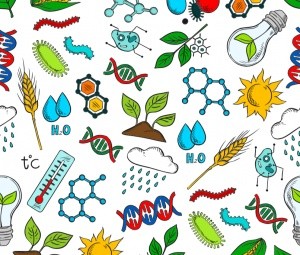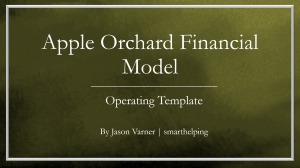
Agriculture Finance models Start the discussion!

What is Agriculture?
Agriculture is the art and science of cultivating the soil, growing crops and raising livestock, of which to ensure its success rigorous financial management is essential.
What is Agriculture Finance?
Agriculture finance is the provision of multiple types of services dedicated to supporting both on-farm and off-farm agricultural activities and businesses. This includes input provision, production, and distribution, wholesale, processing and marketing.
Why are Agriculture Finance Models essential to success?
Agricultural system models play increasingly important roles in the development of sustainable land management across diverse agro-ecological and socioeconomic conditions because field and farm experiments require large amounts of resources and may still not provide sufficient information in space and time to identify appropriate and effective management practices.
Models can help identify management options for maximizing sustainability goals to land managers and policymakers across space and time as long as the needed soil management, climate, and socioeconomic information are available.
Types of Agriculture Finance Models
Agricultural marketing - Agricultural marketing covers the services involved in moving an agricultural product from the farm to the consumer. These services involve the planning, organizing, directing and handling of agricultural produce in such a way as to satisfy farmers, intermediaries and consumers.
Agricultural diversification - In the agricultural context, diversification can be regarded as the re-allocation of some of a farm's productive resources, such as land, capital, farm equipment and labour to other products and, particularly in richer countries, to non-farming activities such as restaurants and shops. Factors leading to decisions to diversify are many, but include: reducing risk, responding to changing consumer demands or changing government policy, responding to external shocks and, more recently, as a consequence of climate change.
Contract Farming - Contract farming involves agricultural production being carried out on the basis of an agreement between the buyer and farm producers. Sometimes it involves the buyer specifying the quality required and the price, with the farmer agreeing to deliver at a future date. More commonly, however, contracts outline conditions for the production of farm products and for their delivery to the buyer’s premises
Agricultural Value Chain - The agricultural value chain concept has been used since the beginning of the millennium, primarily by those working in agricultural development in developing countries. Although there is no universally accepted definition of the term, it normally refers to the whole range of goods and services necessary for an agricultural product to move from the farm to the final customer or consumer.
Inclusive value chains - to promote market linkages in developing countries is often based on the concept of “inclusive value chains”, which usually places emphasis on identifying possible ways in which small-scale farmers can be incorporated into existing or new value chains or can extract greater value from the chain, either by increasing efficiency or by also carrying out activities further along the chain. In the various publications on the topic the definition of “inclusion” is often imprecise as it is often unclear whether the development aim is to include all farmers or only those best able to take advantage of the opportunities.
For more information, refer to:
Most popular models
 User-friendly 3 statement 5 year rolling financial projection Excel model for existing/startup hydroponics business822Discussadd_shopping_cart$49.00
User-friendly 3 statement 5 year rolling financial projection Excel model for existing/startup hydroponics business822Discussadd_shopping_cart$49.00 by Projectify
by Projectify

Orchard (Apple or Otherwise) Excel Financial Model
Bottom-up financial projections for an orchard (apple or otherwise). Includes 3-statement model.1,0832add_shopping_cart$45.00 by Jason Varner
by Jason Varner

Hemp Business - Financial Excel Template
This is a simple template model to create financial projections for hemp business for cultivating activity in the US.1,1141add_shopping_cart$25.00 by Fin team consult
by Fin team consult

Orchard/Crop Farming Financial Projection 3 Statement Model with Scenario Analysis
User-friendly 3 statement 50-year financial projection Excel model for crop/orchard farming business596Discussadd_shopping_cart$49.00 by Projectify
by Projectify

Business Plan Model - Farm Land
A robust business plan model to perform key business calculations and conduct projections to ensure feasibility.270Discussadd_shopping_cart$120.00 by Fin-Wiser Advisory
by Fin-Wiser Advisory

Forestry Financial Projection 3 Statement Model
User-friendly 3 statement 50 year rolling financial projection Excel model for existing/startup Forestry business191Discussadd_shopping_cart$65.00 by Projectify
by Projectify








